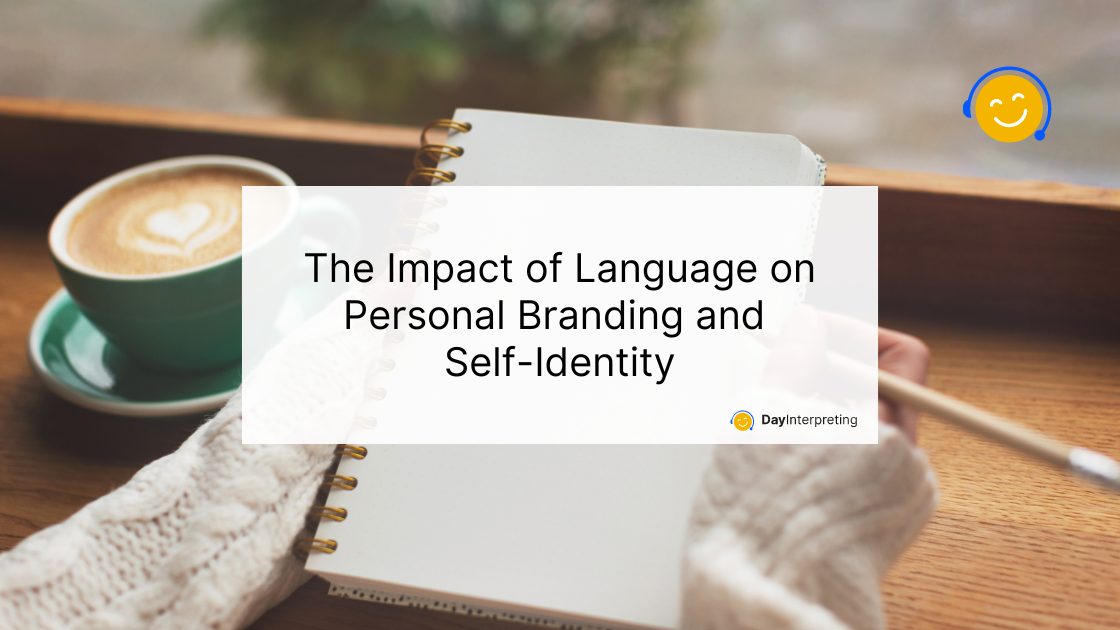Language is more than just words we use to communicate. It’s a powerful tool that shapes who we are, how others see us, and even how we see ourselves. Whether we’re speaking, writing, or even texting, the language we choose plays a huge role in building our personal brand and forming our self-identity. But what does that really mean, and why should it matter to you? Let’s dive into it!
What is Personal Branding?
Personal branding is the way you present yourself to the world. Think of it like this: just as companies like Nike or Apple have a brand that tells people what they’re all about, you also have a personal brand that tells others who you are, what you value, and what makes you unique.
Your personal brand can be influenced by your clothes, the things you post online, the hobbies you pursue, and most importantly, your language. The words you choose, the way you speak, and even how you write can shape how others perceive you. And in today’s world, where we’re constantly connecting with others through social media, emails, and texts, your personal brand is more important than ever.
Why Language Matters in Personal Branding
Language is the bridge between your thoughts and the outside world. The way you express yourself tells people a lot about you. For instance, if you always use polite and respectful language, people might see you as kind and considerate. If you use strong, confident words, they might view you as a leader or someone who knows what they’re doing.
But language isn’t just about the words you say. It’s also about how you say them. Your tone, your choice of words, and even your grammar can affect how others perceive you. For example, using slang or informal language might make you seem friendly and approachable, while using more formal language might make you come across as professional and serious.
The key is to be mindful of how your language reflects the personal brand you want to create. Whether you’re trying to seem trustworthy, funny, smart, or all of the above, the way you use language can help you get there.
How Language Shapes Self-Identity
Your self-identity is how you see yourself and who you believe you are. This can be influenced by many things, including your experiences, your relationships, and yes, your language. The words you use and the way you communicate can actually affect your thoughts, feelings, and beliefs about yourself.
Language, Self-Talk, and Personal Branding
One powerful way language shapes self-identity is through self-talk—the things you say to yourself in your mind. If you constantly tell yourself things like “I can’t do this” or “I’m not good enough,” you might start believing it, which can hurt your self-esteem and make you feel less confident.
On the other hand, if you use positive language when talking to yourself, like “I’ve got this” or “I’m capable,” you can build a stronger, more confident self-identity. This is why many people practice positive affirmations—statements like “I am strong” or “I am successful”—to help reinforce a positive self-image.
Language and Cultural Identity
Language is also closely tied to cultural identity. The language you speak can connect you to your culture, your family, and your heritage. For example, if you speak Spanish at home with your family, that language might be a key part of your identity. It helps you feel connected to your roots and your community.
Sometimes, people may feel pressure to speak a certain way or use a different language in order to fit in or succeed in different environments, like at school or work. This can create a challenge for self-identity, as you might feel like you’re losing a part of yourself. It’s important to find a balance that allows you to stay true to who you are while also expressing yourself in a way that helps you achieve your goals.
The Power of Choosing Your Words Wisely
The language you use is a powerful tool that can help you build a strong personal brand and a positive self-identity. But it’s important to be thoughtful about the words you choose.
Tips for Using Language Effectively
- Know Your Audience: Think about who you’re talking to and what kind of impression you want to make. If you’re speaking to a teacher or boss, you might want to use more formal language. If you’re chatting with friends, you can be more casual and relaxed.
- Be Authentic: Don’t try to be someone you’re not. Use language that feels true to who you are. Authenticity is key to building a personal brand that really represents you.
- Practice Positive Self-Talk: Pay attention to the way you talk to yourself. Try to replace negative thoughts with positive, encouraging words.
- Embrace Your Cultural Language: If you speak more than one language, don’t be afraid to use both. Your cultural language is a part of who you are and can enrich your personal brand and self-identity.
Conclusion: The Influence of Language on Personal Branding
In the end, language is more than just a way to communicate; it’s a tool that helps shape who you are and how others see you. By choosing your words carefully and being mindful of how you use language, you can create personal branding that truly reflects your identity and helps you connect with others in meaningful ways. Remember, your words have power—so use them wisely!





0 Comments